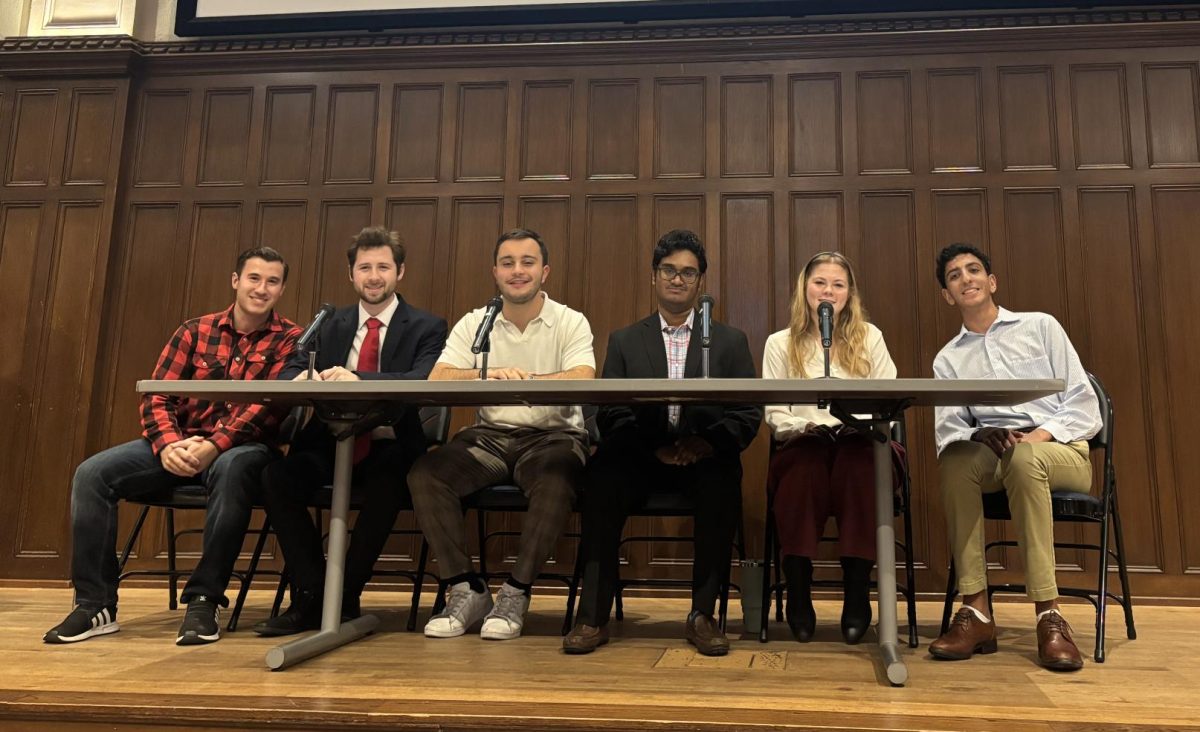
By Aislinn Keely and Jake Shore
An investigation into comments made by Christopher Rodgers, dean of students at Rose Hill, found he did not violate any university policies during resident assistant (RA) training this summer. The university will install a First Deputy Title IX Coordinator to give students “an additional resource” regarding student sexual misconduct on campus, according to a statement from the university.
The university opened the investigation after students spoke out against Rodgers in August, alleging that he acted inappropriately during the sexual misconduct portion of RA training. Some RAs reacted verbally and walked out of training after Rodgers showed two videos addressing sexual assault on college campuses, one he prefaced was from the political right and one from the political left.
The statement said the university acknowledges students’ concerns.
“Showing those clips, in the context of the training sessions, was a mistake. The Student Affairs leadership and staff understands the concerns raised by students and apologizes for the way the training was handled,” it said.
Public Safety and Title IX Coordinator Anastasia Coleman conducted the investigation. They interviewed 30 people, including 13 RAs and nine resident directors (RDs), as well as eight others.
The university sought outside counsel for a third party review from law firm Cullen and Dykman LLP. The third party review was “to ensure fair and comprehensive fact findings and recommendations,” according to the statement. The university handed off its internal interviews to Cullen and Dykman to review.
Cullen and Dykman found that Rodgers’ conduct at the training did not violate the University’s Sexual Misconduct Policy and Procedures for the Fordham University Community, the University’s Code of Conduct or the Handbook for Administrators. The firm said there is no evidence that he is “biased or purposefully insensitive towards claims of sexual misconduct.”
Rodgers declined to comment at this time.
The attorneys within the Higher Education practice group at Cullen and Dykman “work closely with institutional counsel, school administration and staff,” according to their website. The firm also serves as counsel for multiple New York City colleges and universities, and handle employment and sexual misconduct matters, as well as provide Title IX and Article 129-B training throughout New York State, according to the university statement.
Cullen and Dykman also found that some RAs had “genuine concern” that they would feel unable to report claims of sexual misconduct to Rogers as Title IX Coordinator because of his comments and actions at training, according to the statement.
Rowan Hornbeck, FCRH ’18, an RA, was in attendance of Rodgers’ Aug. 18 training and wrote about it afterwards in a statement on Facebook. She said she was glad in the short term to see her concerns and those of fellow RAs validated through this investigation, but she said there is still a lot that did not get addressed.
“I think it’s one thing to say that we’re concerned, but it’s kind of frustrating that the investigation didn’t see that [Rodgers] was kind of the root of a lot of our concerns,” said Hornbeck. “There weren’t any consequences really.”
Cullen and Dykman based its findings on a factual record that the university compiled from interviews and documents relevant to the investigation, related university policies and procedures, the law, and “reasonable inferences from the facts,” according to the statement.
From these findings, Cullen and Dykman recommended that because some RAs may not feel comfortable reporting sexual misconduct issues to Rodgers, other options for reporting incidents of sexual misconduct should be made available.
Counsel also said that further RA training is warranted because RAs were not properly prepared “to handle the emotional nature of sexual assault response.” The statement also relayed that counsel found that the Title IX Coordinator’s role requires further clarification.
The university said that it is taking action based on these recommendations. It has designated Michele Burris, associate vice president for student affairs, as First Deputy Title IX Coordinator. She will be the primary contact for students on sexual misconduct complaints on all campuses. Additional RA training by a third party will be scheduled “as soon as is practicable,” according to the statement. The university also plans to clarify the duties and responsibilities of the Title IX coordinator.
Though Michele Burris has been designated First Deputy Title IX Coordinator, Rodgers maintains his role and functions as a Title IX Coordinator, according to Bob Howe, director of communications for the university.
It has not been specified whether sexual misconduct training for RAs will continue being taught by an outside party at future Residential Life training sessions.
“We are working on a communication about the training—that will likely not be sent until next week,” said Howe.
Hornbeck said she is worried that the investigation will not have any impact on how the administration teaches sexual misconduct or handles cases of sexual assault.
“In the short term, the investigation addressed some of our concerns about training. But I am really worried because a lot of us who were vocal were seniors. And I don’t know what’s going to happen,” said Hornbeck. “I don’t know if they’re going to continue bringing in outside presenters. I don’t know how uninvolved Dean Rodgers will stay in investigating such cases.”







































































































































































































